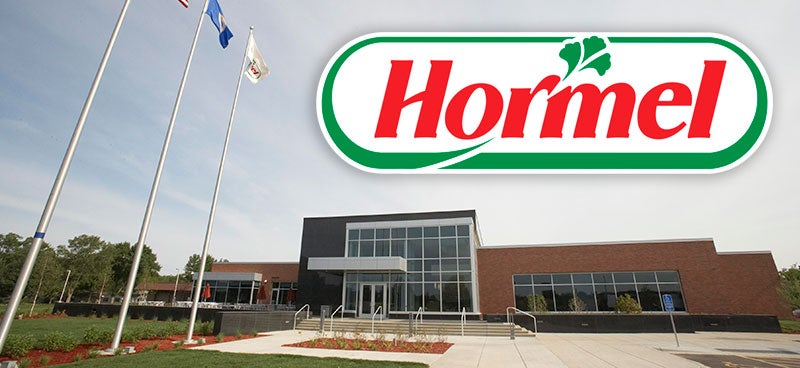Payments increase for new MN CREP
Published 9:47 am Monday, April 3, 2023

- Mower SWCD watershed technician James Fett checks a native prairie and wetland restoration in July 2019 at CREP site in Dexter Township. Photo provided
|
Getting your Trinity Audio player ready...
|
Land sales drive change in rates for permanent conservation
More financial incentives are available now for Mower County farmers and others across the state who are interested in converting marginal cropland into permanent native prairie and wetlands.
Payment rates offered by the state-federal MN CREP program have increased on average by $2,900 per acre as decided by the Minnesota Board of Soil & Water Resources (BWSR). Average MN CREP payment rates in Mower County have increased from about $7,600 an acre in 2018 to about $10,500 this month. MN CREP payments in Mower County range from about $9,900 per acre to $11,100 per acre depending on the township.
By the end of 2022, higher land-sale prices had led many landowners in Minnesota to decide not to apply for MN CREP until the program’s payments increased to reflect those land-value changes, said James Fett, watershed technician for Mower Soil & Water Conservation District in Austin.
“If you’re a landowner who has been on the fence about enrolling land into MN CREP, now is the perfect time to stop by the office and look into it again,” said Fett, who oversees MN CREP enrollments in Mower County. “We all have seen land sale prices rise dramatically in the past three years, and MN CREP payment rates have been adjusted.”
New payment rates for MN CREP reflect the increase in average assessed tillable rates in each qualifying township, Fett said.
MN CREP is a state-federal program that combines the federal Conservation Reserve Program (CRP) with the state’s Reinvest In Minnesota (RIM). Landowners accepted into MN CREP enroll in the federal Conservation Reserve Program (CRP) for 14 to 15 years. At the same time, the land is put into a permanent conservation easement through the state RIM program.
Overall, MN CREP aims to protect and restore up to 60,000 acres across 54 southern and western Minnesota counties, including Mower, by using vegetative buffer strips, wetland restoration and drinking water wellhead protection.
To date, Mower County has had 14 easements through MN CREP totaling 670 acres since the initiative started in 2017, with nearly 560 acres of that in the Cedar River Watershed in western Mower County. In 2022, Mower SWCD led two MN CREP enrollments – about 57 acres and 59 acres – in Udolpho Township in the northwest corner of Mower County.
In 2022, five MN CREP projects totaling 208 acres were seeded in late spring or early summer. These highly diverse native grass and flower seedings included filter strip, wet prairie, upland prairie, emergent wetland fringe and pollinator prairie seed mixes.
“We will see a few flowers start to pop in 2023 but it will take until 2024 for these prairies to fully establish and look beautiful,” Fett said.
Crews in September 2022 also did a wetland restoration for about 23 acres in Udolpho Township. This earthmoving work involved making all subsurface drain tile in the field inoperable to restore the original wetland hydrology. A large embankment also was built to restore and enhance a depressional wetland to function as it did before human settlement. Any disturbed areas were seeded with a diverse native prairie grass and flower mix.
New state RIM programs are expected to be available by summer, with BWSR expected to release some flexible options, Fett said. RIM payment rates are a little less than MN CREP – average of $8,100 per acre – but Mower SWCD can enroll existing CRP acres into the RIM program.
Since 2017, Mower Soil & Water Conservation District now has led the enrollment of 613 acres into MN CREP, a voluntary program focused on marginal cropland that is flood-prone or erosive. MN CREP permanently takes those acres out of agricultural production and restores the land to native prairie and wetlands.
Ag producers and landowners interested in potential conservation easements are strongly encouraged to connect soon with James Fett at Mower SWCD or USDA staff from Farm Service Agency or Natural Resources Conservation Service.
For those not interested in permanent conservation on their land, USDA offers CRP contracts of 10 to 15 years
Typically, MN CREP restorations involve restoring hydrology through tile breaks, tile blocks, scrapes, embankment construction and daylighting tiles, among other practices. The site is seeded with a highly diverse mixture of native grasses and forbs beneficial to wildlife and pollinator habitat. That also prevents erosion and filters surface and ground water.
These enrollments will improve water quality and wildlife habitat in local watersheds, Fett said.
More than 200 acres of MN CREP are in the Wolf Creek watershed, directly upstream from Austin’s Todd Park, where Mower SWCD has worked with the Minnesota Department of Natural Resources to stock about 600 rainbow trouts the past three years.
Mower County landowners interested in MN CREP should contact James Fett, Mower SWCD, at 507-460-4592 or by email at: james@mowerdistrict.org




